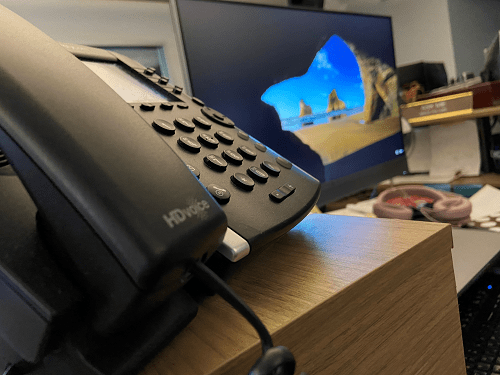
8.7.21 -KXAN
Not feeling well? Stay home. That’s what health experts have been saying for more than a year as a first line of defense against spreading COVID-19 to your coworkers and their families.
So why are people still showing up to work sick?
A new Texas State study on presenteeism (which researchers defined as showing up to work despite short or long-term illness and not being fully present as a result), which began at the end of 2019 and went through a second phase this summer, asked respondents from a variety of fields to do surveys and interviews on that topic.
The research shows where you work and the culture of your workplace really matter.
The pros of COVID-19 on the workplace
Dr. Elizabeth K Eger, an assistant professor for the Department of Communication Studies at Texas State, and the lead researcher on the study, says the pandemic has disrupted our previous line of thinking about working while sick.
“I can think of so many times that I was teaching and students would come coughing up a storm to class and same thing with working in real estate or I worked in retail in the past and people would just come with the flu or bronchitis and that was just sort of, we just pushed through it,” Dr. Eger said.
Because of public health messaging, the mentality that it’s okay to show up sick to a public place, like work, is changing — and businesses are more willing to pay for that time off.
“We’re seeing that there are more organizations and governmental leave policies that did not exist in some organizations prior to COVID,” Dr. Eger said. “I think the policy changes are really encouraging.”
Dr. Eger says those policies are also making a big impact for people who have a chronic health condition. Those employees now often have the tools to work from home or take time off altogether.
Why people still show up to work sick
Dr. Eger’s research found that the divide is deepening between the people who feel comfortable, and are able to take sick time, and those who are not.
One group of people that largely hasn’t seen the benefits of policy change surrounding sick leave, Dr. Eger says, is part-time employees. They reported that sick leave at their workplaces had to be accrued, or that they didn’t receive it at all.
For the many people who started a new part-time job during the pandemic to make ends meet, that accrual of sick leave would come too late.
But it wasn’t just lack of access to sick days that stopped people from showing up to work not feeling well, even for people who work a full-time job and have those benefits — culture matters.
The study found that many employees did not feel comfortable taking sick time because of the environment at their workplace.
“When people do take time off coworkers or managers gripe behind their back, that’s not going to be an environment where people feel empowered to actually take sick leave,” Dr. Eger said.
She says that culture has to be precedent, and can be created by managers leading by example.
Another reason Dr. Eger found people still show up to work sick is that companies group sick leave with vacation time, simply calling it paid time off. She found that people were less likely to call out sick if they were saving that time for vacations or other breaks from work.
